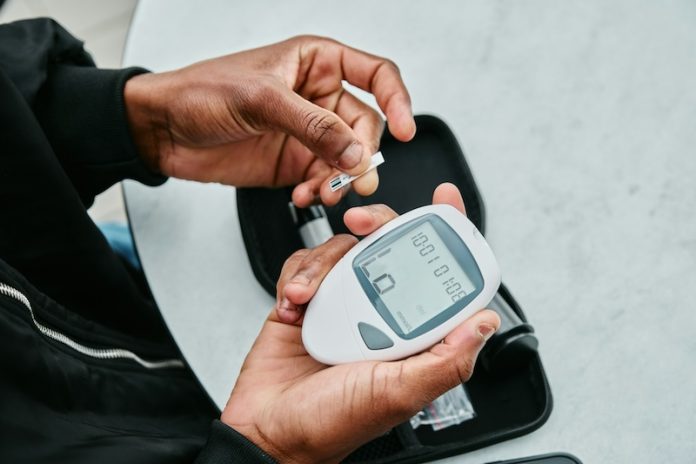
A recent study from the University of North Carolina has provided valuable insights into which medications are most effective at managing blood sugar levels in people with type 2 diabetes.
The researchers focused on four commonly used drugs that are often combined with metformin, the standard first-line treatment for type 2 diabetes.
Among these, two drugs—liraglutide and insulin—stood out as the most effective in keeping blood sugar within the recommended target range.
Type 2 diabetes is a condition where the body either does not produce enough insulin or cannot use insulin effectively.
This leads to high blood sugar levels, which can cause serious health problems over time, including heart disease, stroke, kidney damage, and nerve damage.
Managing blood sugar levels is crucial to prevent these complications, and metformin is typically the first medication prescribed to help with this. However, when metformin alone is not enough to keep blood sugar under control, additional medications are often needed.
In this study, about 5,000 participants with type 2 diabetes were divided into four groups, each receiving one of the following medications in addition to metformin: glimepiride, sitagliptin, insulin glargine, or liraglutide.
Glimepiride is an oral medication that stimulates the pancreas to release more insulin. Sitagliptin is another oral drug that helps the body increase insulin production and decrease sugar production in the liver.
Insulin glargine is a long-acting insulin injected once daily, and liraglutide is an injectable medication that mimics a hormone called GLP-1, which helps control blood sugar.
The study’s results showed that liraglutide and insulin glargine were the most effective at keeping blood sugar levels within the target range, as measured by A1C levels.
A1C is a common blood test that shows the average blood sugar level over the past two to three months. The goal for most people with diabetes is to keep their A1C level below 7%.
Both liraglutide and insulin glargine were better at achieving this goal compared to glimepiride and sitagliptin. In fact, sitagliptin was the least effective of the four drugs in controlling blood sugar.
The differences in effectiveness were particularly noticeable in participants who started the study with higher A1C levels, suggesting that liraglutide and insulin may be especially beneficial for people whose blood sugar is not well-controlled with metformin alone.
In addition to controlling blood sugar, the study also looked at the impact of these medications on body weight.
Participants who took liraglutide and sitagliptin experienced more weight loss compared to those on glimepiride, while those taking insulin glargine maintained a stable weight.
Weight management is an important aspect of diabetes care, as excess weight can worsen insulin resistance and make blood sugar harder to control.
However, liraglutide did come with some side effects. Participants reported more gastrointestinal issues, such as nausea, abdominal pain, and diarrhea, compared to those on the other medications.
Despite these side effects, liraglutide showed a potential added benefit in reducing the risk of serious cardiovascular events like heart attacks and strokes, which are common complications of diabetes.
Another important finding was that glimepiride was associated with a higher risk of severely low blood sugar levels, also known as hypoglycemia, although this was a rare occurrence.
Hypoglycemia can be dangerous, causing symptoms like confusion, dizziness, and even loss of consciousness if not treated promptly.
The study’s findings are particularly helpful for healthcare providers and patients making decisions about diabetes treatment.
When metformin alone is not sufficient to control blood sugar, liraglutide or insulin glargine may be better options than glimepiride or sitagliptin, especially for those who have higher A1C levels or are at risk for cardiovascular problems.
The choice of medication can also be tailored based on other factors, such as the patient’s weight management goals and tolerance for side effects.
In summary, this research highlights the importance of selecting the right medication to manage type 2 diabetes effectively.
While metformin remains the cornerstone of treatment, liraglutide and insulin glargine offer powerful options for keeping blood sugar in check and reducing the risk of serious complications.
If you care about diabetes, please read studies that pomace olive oil could help lower blood cholesterol, and honey could help control blood sugar.
For more information about diabetes, please see recent studies about Vitamin D that may reduce dangerous complications in diabetes and results showing plant-based protein foods may help reverse type 2 diabetes.
Copyright © 2024 Knowridge Science Report. All rights reserved.



